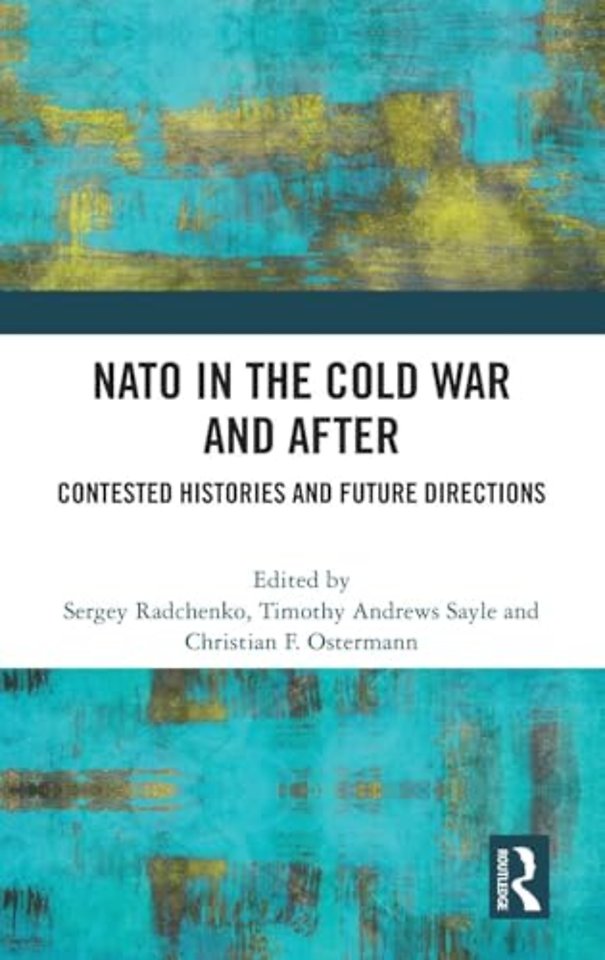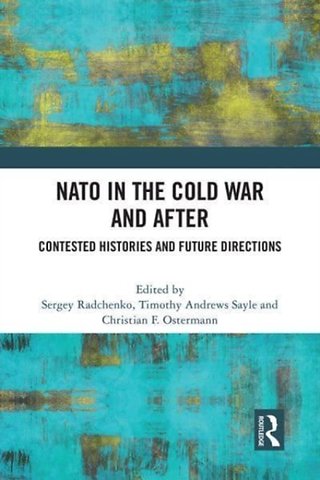NATO in the Cold War and After
Contested Histories and Future Directions
Gebonden Engels 2021 1e druk 9781032170619Samenvatting
This book examines episodes in NATO’s history from the founding of the North Atlantic Alliance in 1949 to its transition to the post-Cold War order in the 1990s, with an eye to better understanding its present and its future.
NATO’s history, now running over seventy years, can no longer be framed in Cold War terms alone. Nor can the organization be understood fully as a post-Cold War institution. Today’s NATO is a product of both these eras. This edited volume offers a reconsideration of NATO’s place in history, looking both at how the alliance coped with the Cold War and how it managed its difficult transition to the post-Cold War international order. Contributors recount how NATO coped with its many political and operational challenges, which on occasion threatened – but never managed to – derail the alliance. The book opens new vistas for explaining how NATO thrived and survived for decades and ponders whether it will survive for many more.
The book will be of great value to scholars, students and policymakers interested in Politics, International Studies, Global Affairs and Public Policy.
The chapters were originally published as a special issue of Journal of Strategic Studies.
Specificaties
Lezersrecensies
Inhoudsopgave
Sergey Radchenko, Timothy Andrews Sayle and Christian Ostermann
1. ‘Nothing but humiliation for Russia’: Moscow and NATO’s eastern enlargement, 1993-1995
Sergey Radchenko
2. Eastbound and down: The United States, NATO enlargement, and suppressing the Soviet and Western European alternatives, 1990–1992
Joshua R. Itzkowitz Shifrinson
3. The overlooked importance of economics: why the Bush Administration wanted NATO enlargement
Liviu Horovitz and Elias Götz
4. An uncertain journey to the promised land: The Baltic states’ road to NATO membership
Andres Kasekamp
5. Debating détente: NATO’s Tindemans Initiative, or why the Harmel Report still mattered in the 1980s
Susan Colbourn
6. A nuclear education: the origins of NATO’s Nuclear Planning Group
Timothy Andrews Sayle
7. The zero option and NATO’s dual-track decision: Rethinking the paradox
Andreas Lutsch
8. Visions of the next war or reliving the last one? Early alliance views of war with the Soviet Bloc
Jeffrey H. Michaels
9. NATO’s inherent dilemma: strategic imperatives vs. value foundations
Ruud van Dijk and Stanley R. Sloan
Anderen die dit boek kochten, kochten ook
Rubrieken
- advisering
- algemeen management
- coaching en trainen
- communicatie en media
- economie
- financieel management
- inkoop en logistiek
- internet en social media
- it-management / ict
- juridisch
- leiderschap
- marketing
- mens en maatschappij
- non-profit
- ondernemen
- organisatiekunde
- personal finance
- personeelsmanagement
- persoonlijke effectiviteit
- projectmanagement
- psychologie
- reclame en verkoop
- strategisch management
- verandermanagement
- werk en loopbaan







